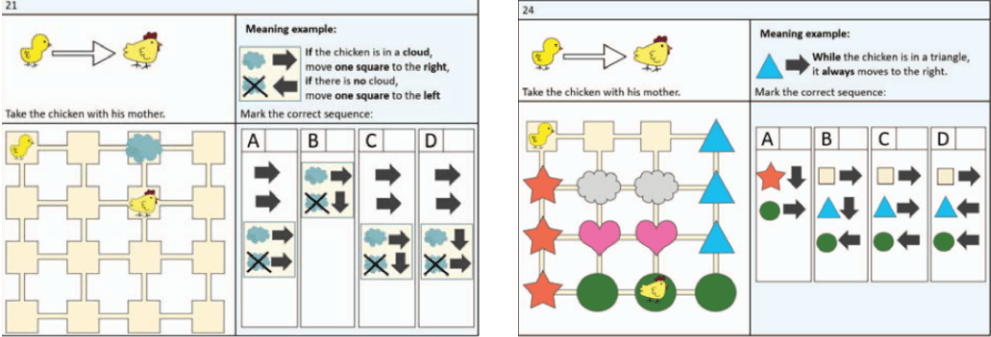2020-06-25 | book-chapter
María Zapata-Cáceres, Estefanía Martín-Barroso, Marcos Román-González
Abstract
Computational Thinking (CT) is a fundamental skill that is not only confined to computer scientists’ activities but can be widely applied in daily life and is required in order to adapt to the future and, therefore, should be taught at early ages. Within this framework, assessing CT is an indispensable part to consider in order to introduce CT in the school curricula. Nevertheless, efforts involving the formal assessment of computational thinking has primarily focused on middle school grades and above; and are mostly based on the analysis of projects in specific programming environments. A Beginners Computational Thinking Test (BCTt), aimed at early ages, and based on the Computational Thinking Test [1], has been designed including several improvements; submitted to a content validation process through expert́s judgement procedure; and administered to Primary School students. The BCTt design is considered adequate by experts and results show a high reliability for the assessment of CT in Primary School, particularly in first educational stages.

